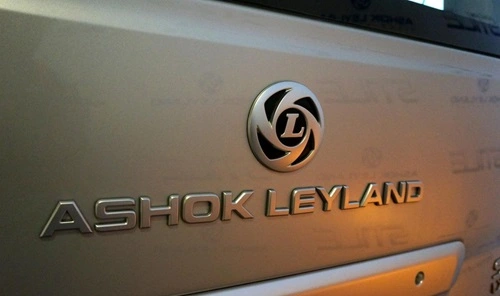Ashok Leyland, a flagship company of the Hinduja Group, is a leading commercial vehicle manufacturer in India and ranks among the top 10 globally. The company, founded in 1948, has established a dominant presence in the medium and heavy commercial vehicle (MHCV) segment. Over the years, Ashok Leyland has expanded its product portfolio, ventured into electric vehicles, and tapped into international markets. This article presents an in-depth SWOT analysis of Ashok Leyland for 2024, covering its strengths, weaknesses, opportunities, and threats, along with its current overview and future plans.

Current Overview of Ashok Leyland:
Ashok Leyland continues to solidify its position in the commercial vehicle market, contributing significantly to India’s economy. The company has seen consistent growth in its domestic and international sales, driven by its robust manufacturing capabilities and product innovation. With facilities across India, the UK, the UAE, and Czech Republic, Ashok Leyland efficiently caters to a wide range of customers while maintaining economies of scale. The company has also ventured into electric buses and eco-friendly commercial vehicles, signaling its commitment to sustainability and reducing emissions.
Strengths:
1. Strong Manufacturing Capabilities: Ashok Leyland’s widespread manufacturing facilities in key regions such as India, the UK, and the UAE enable it to achieve economies of scale and meet growing demand efficiently. The company is also known for its ability to deliver a diverse range of commercial vehicles, including trucks, buses, and defense vehicles.
2. Market Leadership in MHCVs: The company holds a strong position in the medium and heavy commercial vehicle sector, second only to Tata Motors in India. This leadership, combined with a well-established supply chain, gives Ashok Leyland a competitive advantage in the domestic market.
3. Technological Innovation: Ashok Leyland has made significant investments in research and development (R&D), particularly in electric vehicles (EVs) and hybrid technologies. The introduction of India’s first electric bus and other eco-friendly initiatives highlight its innovative approach.
4. Strong Brand Equity: Ashok Leyland is a trusted brand with a solid reputation for delivering reliable and durable vehicles. This brand strength allows the company to maintain customer loyalty and command a significant market share in India and abroad.
Weaknesses:
1. Dependence on the Indian Market: Despite its global footprint, Ashok Leyland relies heavily on its domestic market, which generates a majority of its revenue. This over-dependence on India makes the company vulnerable to economic slowdowns, regulatory changes, and market fluctuations within the country.
2. Termination of Joint Ventures: The termination of joint ventures, such as its collaboration with Nissan in 2016, negatively impacted the company’s expansion plans and operational efficiency. Such disruptions have weakened its ability to leverage international partnerships.
3. High Competition in Export Markets: Although Ashok Leyland is expanding its presence internationally, it faces stiff competition from global players like Tata Motors, Mahindra, and international brands such as Volvo and Daimler, which could affect its market share growth in foreign regions.
Opportunities:
1. Growing Global Automotive Industry: The global commercial vehicle market continues to grow, especially in emerging economies. This offers Ashok Leyland opportunities to increase its exports and expand into new markets, such as Latin America, Southeast Asia, and Africa, where demand for commercial vehicles is on the rise.
2. Product Portfolio Expansion: Ashok Leyland’s focus on R&D presents opportunities for the company to diversify its product offerings, especially in electric and hybrid vehicles. Expanding its range of eco-friendly vehicles could enhance its global competitiveness, especially with increasing demand for sustainable transportation solutions.
3. Advancing in Digital and Technological Innovations: The increasing integration of digital solutions in vehicle management, such as connected vehicle technology and AI-based fleet management, presents opportunities for Ashok Leyland to offer advanced, smart commercial vehicles that cater to the evolving needs of logistics and transportation businesses.
Threats:
1. Intense Competition: The Indian and global commercial vehicle industries are highly competitive, with key players like Tata Motors, Eicher Motors, Mahindra & Mahindra, and foreign brands intensifying the market. To maintain its leadership, Ashok Leyland must continuously innovate and remain competitive in pricing.
2. Environmental Regulations: Stringent environmental regulations regarding emissions and safety pose challenges for vehicle manufacturers. Ashok Leyland must invest heavily in ensuring its vehicles comply with increasingly stringent global emission standards, which can raise operational costs and impact profitability.
3. Commodity Price Volatility: The prices of essential raw materials, such as steel, aluminum, and copper, are subject to fluctuations. Volatility in these commodities can directly affect Ashok Leyland’s profitability and pricing strategy.
Future Plans:
Looking ahead, Ashok Leyland is focusing on sustainability, digital transformation, and expanding its international presence. The company plans to strengthen its position in the electric vehicle market by introducing more eco-friendly trucks and buses. Additionally, Ashok Leyland aims to tap into emerging markets, particularly in Africa and Latin America, where there is significant potential for growth. The company is also leveraging technology to introduce smart fleet solutions and connected vehicle services, enhancing operational efficiency for its customers.
Conclusion:
Ashok Leyland continues to be a dominant force in the commercial vehicle industry, with its strong manufacturing capabilities, brand reputation, and commitment to innovation. However, the company must address challenges such as high dependence on the Indian market and intensifying competition. By capitalizing on global expansion opportunities, advancing its product portfolio, and embracing digital and environmental solutions, Ashok Leyland is well-positioned to navigate future challenges and sustain its growth trajectory in the global market